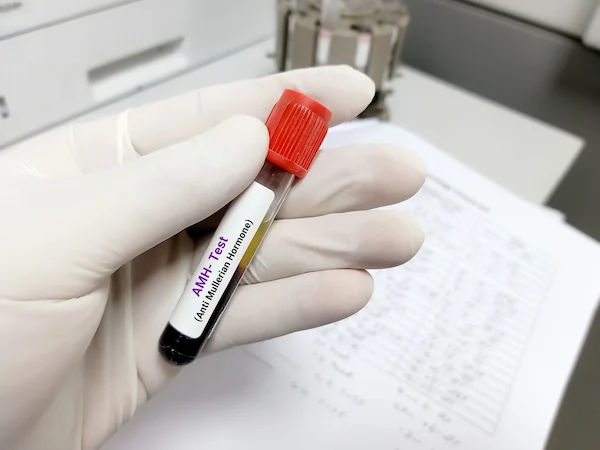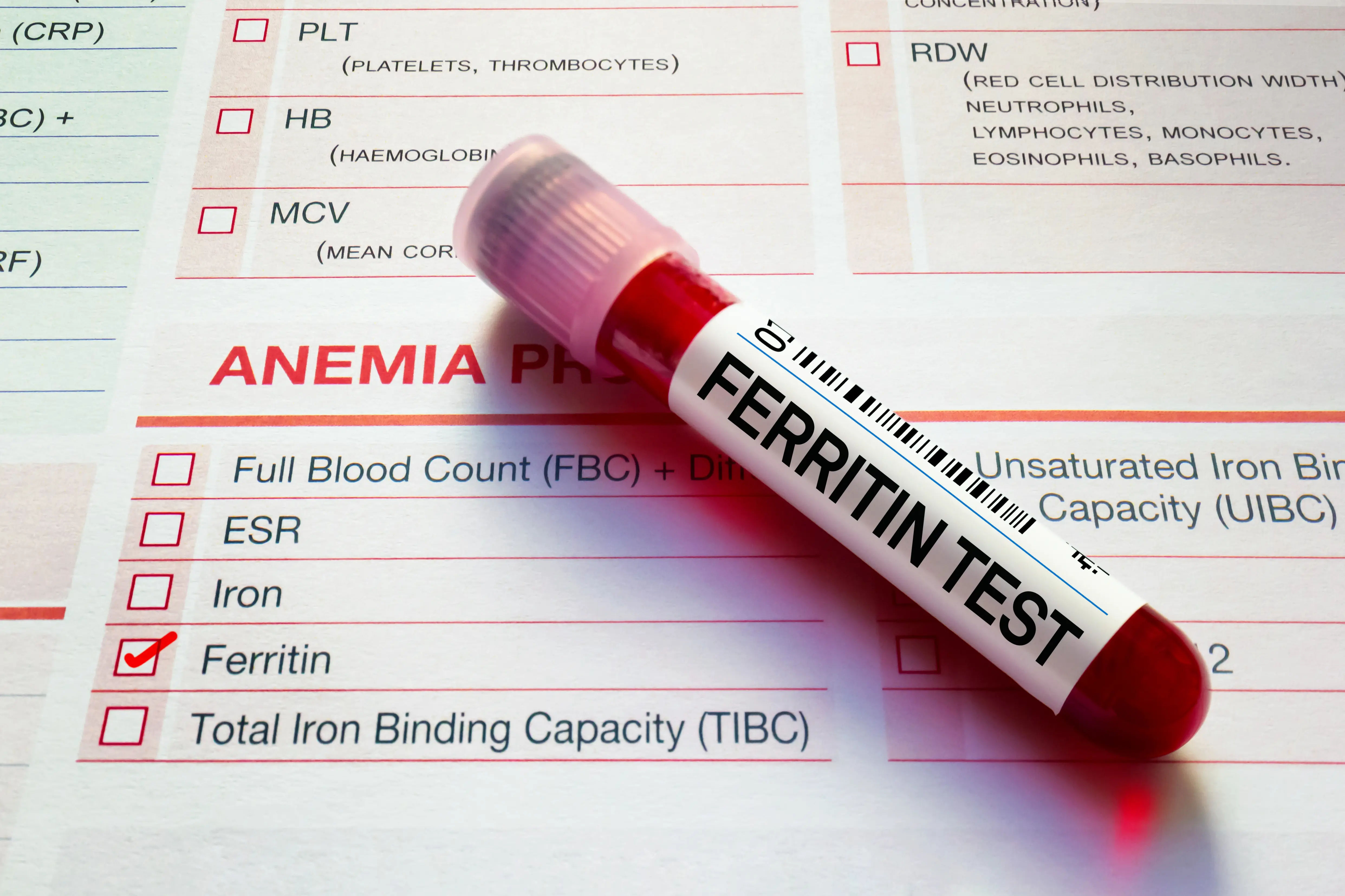Planning a Family? Essential Hormone Tests Before You Try to Conceive
Thinking of starting a family? Learn about the key hormone tests you should take before trying to conceive to support fertility, identify issues early, and improve your chances of pregnancy.

Written by Dr. Rohinipriyanka Pondugula
Reviewed by Dr. J T Hema Pratima MBBS, Fellowship in Diabetes Mellitus
Last updated on 10th Sep, 2025

Starting a family is a big step, full of excitement and hope for many couples. As you begin to think about pregnancy, it's really important to focus on your health before conception. We all know that eating well and living healthily matter, but understanding your hormones is just as crucial. Hormones are like the conductors of your body's reproductive system, managing everything from when an egg is released to preparing the womb for pregnancy.
For couples getting ready for pregnancy, considering preconception hormone tests can give you valuable information. These tests help ensure your body is in the best possible shape for a healthy conception and pregnancy. This article will guide you through the key hormone tests that can support your fertility journey, explaining why they are important for both women and men.
Why Hormone Health Matters for Conception?
A woman's ability to get pregnant and carry a baby to term relies heavily on a careful balance of hormones. These chemical messengers control the entire menstrual cycle. This includes the growth and release of an egg (ovulation) and getting the womb lining ready for a fertilised egg to settle. If any of these hormones are out of balance, this complex process can be disrupted, which might make it harder to conceive or stay pregnant.
For men, hormones are also vital. They are mainly responsible for producing sperm and for overall reproductive health. While people often focus on the woman, a complete approach to fertility looks at both partners. Understanding your hormone levels before trying for a baby can help spot any potential issues early. This means you can get help sooner, making your path to parenthood smoother.
Essential Hormone Tests Before You Try to Conceive
If you're planning to start a family, understanding your hormonal health can be a powerful first step. Hormones influence key processes like ovulation, menstrual cycles, sperm production and embryo implantation. Preconception hormone tests help identify imbalances that might affect fertility and guide your doctor in creating a personalised plan that fits your needs.
Hormone Tests for Women
- Follicle-Stimulating Hormone (FSH): Produced by the pituitary gland, FSH stimulates the development of ovarian follicles. High FSH levels, especially on day 3 of the menstrual cycle, may suggest diminished ovarian reserve or fewer viable eggs.
- Luteinizing Hormone (LH): LH works alongside FSH to trigger ovulation, the release of a mature egg. Abnormal levels or an altered LH: FSH ratio may indicate polycystic ovary syndrome (PCOS). LH is usually tested mid-cycle to detect ovulation.
- Anti-Müllerian Hormone (AMH): AMH is secreted by cells in ovarian follicles and reflects the number of eggs remaining. Low AMH suggests reduced egg supply, while high AMH may indicate PCOS. Unlike other hormones, AMH can be tested at any time in the cycle.
- Estradiol (E2): Estradiol is the main form of estrogen and supports the development of the uterine lining. Its levels help evaluate egg quality and ovarian function. Typically measured on day 3 of the cycle or during fertility treatments.
- Progesterone: Produced after ovulation by the corpus luteum, progesterone supports earl pregnancy by preparing the uterus for implantation. Testing around day 21 (in a 28-day cycle) helps confirm ovulation and determine if levels are sufficient.
- Prolactin: While best known for its role in milk production, prolactin can influence ovulation. Elevated prolactin can suppress other reproductive hormones and disrupt cycles. It’s often measured in the morning, ideally while fasting.
- Thyroid Hormones (TSH, T3, T4): Thyroid hormones regulate metabolism and reproductive health. Both underactive and overactive thyroid conditions can affect ovulation and increase the risk of miscarriage. Testing is recommended if symptoms like fatigue, weight changes or irregular periods are present.
Hormone Tests for Men
- Testosterone: The primary male sex hormone, testosterone, is crucial for sperm production and sexual function. Low levels can affect sperm count, quality and libido. Morning testing is ideal due to natural daily fluctuations.
- Follicle-Stimulating Hormone (FSH) and Luteinizing Hormone (LH): These regulate testicular function and sperm production. Abnormal levels may point to testicular dysfunction, hormonal imbalance or problems with the pituitary gland.
- Prolactin: Although less commonly tested in men, elevated prolactin can interfere with testosterone production, reduce sexual desire and impair fertility. It’s recommended if symptoms like low libido or erectile dysfunction occur.
- Thyroid Hormones (TSH, T3, T4): Thyroid imbalances can reduce sperm quality and affect reproductive hormones. Testing is advised if there are signs of thyroid dysfunction or unexplained infertility.
Book Apollo Fertility Profile – Female Here
When to Consider a Preconception Hormone Test?
Hormone testing before pregnancy is not limited to couples facing fertility challenges. It is a proactive step that can benefit anyone planning to conceive. These tests help uncover imbalances that may interfere with ovulation, sperm production or implantation, even if there are no obvious symptoms.
You may want to consider a preconception hormone test if:
- You have been trying to conceive for six months or longer without success: Early testing can help uncover hidden hormonal issues that may be affecting fertility.
- Your menstrual cycles are irregular or absent: Irregular periods may signal problems with ovulation or hormone production.
- You have been diagnosed with conditions such as PCOS, thyroid disorders or endometriosis: These conditions often involve hormonal imbalances that can interfere with conception.
- You are over the age of 35: Fertility naturally declines with age, and hormone testing can help assess ovarian reserve and reproductive potential.
- You have experienced multiple miscarriages or failed fertility treatments: Hormone testing may reveal underlying causes that can be addressed before trying again.
- You are planning to undergo assisted reproductive techniques such as IVF or IUI: Hormone levels play a critical role in the success of these treatments.
- You want to assess your reproductive health before stopping birth control: Testing provides a baseline and helps guide your next steps.
For men, a hormone test for fertility may be recommended if there are concerns about low libido, erectile dysfunction or abnormal semen analysis results.
Getting tested early allows your healthcare provider to identify potential issues and guide you toward the right treatment or lifestyle changes. It is a simple step that can make a meaningful difference in your journey to parenthood.
Special Fertility Packages from Apollo 24|7
If you are planning to start a family, understanding your hormonal health can be one of the most important first steps. Apollo 24|7 offers a range of fertility test packages designed to simplify the process and make reliable testing more accessible to women.
Apollo Fertility Profile – Female: This comprehensive package is designed to assess key aspects of reproductive health. It typically includes the following tests:
- Follicle-Stimulating Hormone (FSH)
- Luteinizing Hormone (LH)
- Anti-Müllerian Hormone (AMH)
- Estradiol (E2)
- Prolactin
These packages are available for online booking and often include home sample collection, digital report access, and optional follow-up consultations with doctors.
If you prefer to test specific hormones, Apollo 24|7 also offers individual assessments such as testosterone, prolactin, or thyroid panels. To explore the full list of available tests and find the right option for your fertility planning, visit the Reproductive and Fertility Tests section on the Apollo 24|7 website.
Get Your Health Assessed Here
Conclusion
Preparing for pregnancy is an important and meaningful step. While many factors can affect fertility, understanding your hormone health is a key part of getting your body ready to conceive. Preconception hormone tests (or hormone test for fertility) can provide valuable insight into how your reproductive system is functioning and help identify any imbalances that might affect your chances of conceiving.
By addressing these issues early and working with trusted diagnostic services like Apollo 24|7, you can make informed choices that support a healthy path to pregnancy. Discussing these tests with your doctor is a simple but important way to take control of your fertility and move forward with confidence as you plan for the future.





